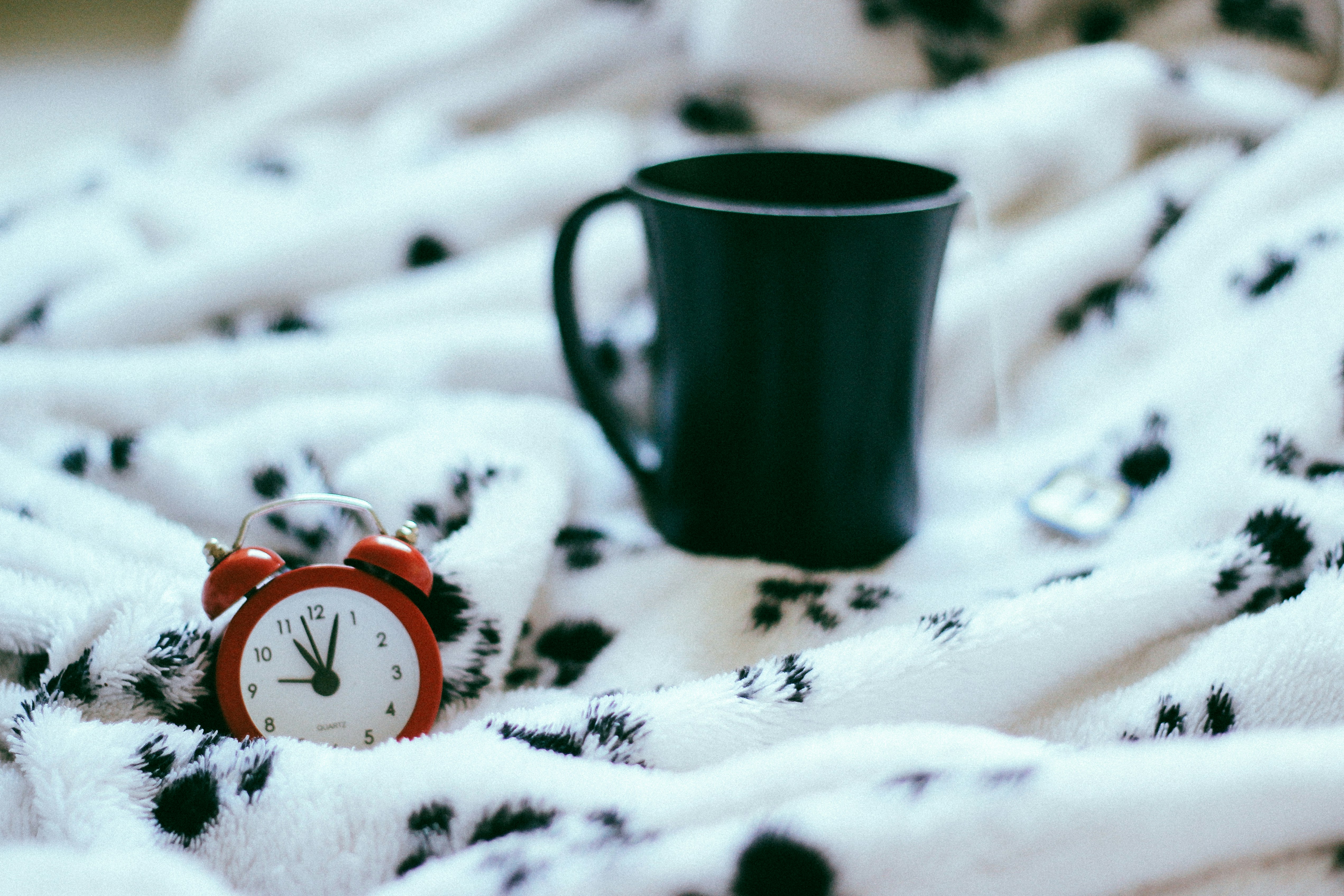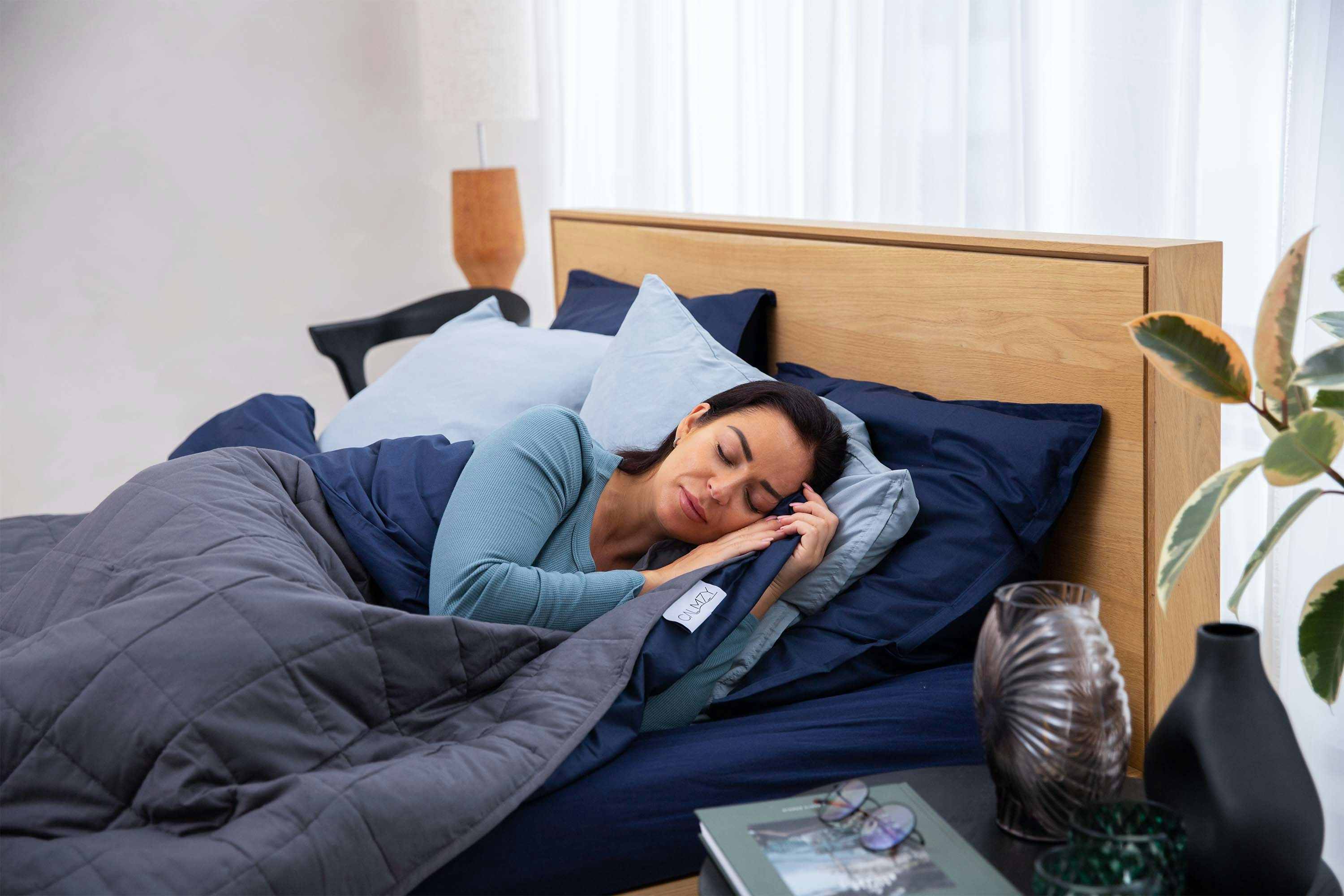Understanding Circadian Rhythms: The Body's Internal Clock and Sleep

Introduction
Ever wonder why you feel sleepy around the same time every night or wake up without an alarm on weekends? That’s your circadian rhythm at work—a natural, internal process that regulates your sleep-wake cycle, repeating roughly every 24 hours.
In this article, we’ll break down what circadian rhythms are, how they impact your sleep and overall health, and what you can do to optimize your body clock for better energy, focus, and rest.
1. What Is the Circadian Rhythm?
The circadian rhythm is a biological process controlled by the brain’s suprachiasmatic nucleus (SCN) , located in the hypothalamus. It governs not only sleep but also hormone release, body temperature, digestion, and cognitive performance.
Key characteristics:
- It runs on a ~24-hour cycle.
- It is influenced by external cues (called zeitgebers ), especially light .
- It helps determine when you feel alert and when you feel sleepy.
2. How the Circadian Clock Works
Your circadian rhythm is synced by environmental signals , especially:
- Light exposure : Blue light in the morning helps suppress melatonin and increase wakefulness.
- Darkness : In the evening, your body starts producing melatonin , the sleep hormone.
Here’s a simplified version of the body’s clock:
| Time | Typical Circadian Event |
|---|---|
| 6:00 AM | Melatonin production stops (wake up) |
| 10:00 AM | Peak alertness |
| 2:00 PM | Post-lunch dip in energy |
| 6:00 PM | Highest blood pressure and body temp |
| 9:00 PM | Melatonin production begins |
| 10:00–11:00 PM | Optimal time to fall asleep |
3. The Importance of Circadian Rhythms for Sleep
Circadian rhythms determine:
- When you feel sleepy or awake
- When melatonin is released
- Your core body temperature and metabolism during the night
When your internal clock is aligned with your external environment, you experience:
- Deeper, more restorative sleep
- Better mood and cognition
- Improved digestion and immunity
4. What Happens When Circadian Rhythms Are Disrupted?
Circadian misalignment can occur due to:
- Jet lag
- Shift work
- Inconsistent sleep schedules
- Excessive screen time at night
- Poor exposure to natural light
Common effects of disruption include:
- Insomnia or difficulty falling asleep
- Daytime fatigue or brain fog
- Mood disturbances like anxiety or depression
- Weakened immune function
- Increased risk of chronic diseases (e.g., diabetes, heart disease)
According to the CDC, shift workers and night owls are at higher risk of metabolic syndrome due to circadian misalignment.
5. Chronotypes: Are You a Morning Lark or Night Owl?
Not everyone has the same internal timing. Your chronotype is your natural inclination toward sleeping and waking at certain times.
- Morning types : Feel alert early in the day, prefer early bedtimes
- Evening types : More productive at night, prefer late mornings
- Intermediate types : Somewhere in the middle
Understanding your chronotype can help you:
- Schedule workouts or deep work at optimal times
- Plan social events when you’re more energetic
- Avoid fighting your natural rhythm unnecessarily
6. How to Reset or Improve Your Circadian Rhythm
If your sleep schedule is off, there are practical steps to realign your internal clock:
6.1 Prioritize Morning Light
- Get 20–30 minutes of natural sunlight within 1 hour of waking
- Opens your “wake window” and helps suppress melatonin
6.2 Stick to a Consistent Sleep Schedule
- Wake up and go to bed at the same time—even on weekends
- Avoid “social jet lag,” where your schedule shifts dramatically on weekends
6.3 Limit Blue Light at Night
- Reduce screen exposure after 8 PM
- Use blue light filters or “night mode” on devices
- Consider blue light blocking glasses
6.4 Avoid Late Meals and Caffeine
- Eating or drinking coffee too late can signal your body to stay alert
- Try to finish meals at least 2–3 hours before bedtime
6.5 Melatonin Supplementation (Short-Term)
- Small doses (0.3–1 mg) can help reset the clock during travel or sleep disruptions
- Best taken 30–60 minutes before intended sleep time
- Not recommended for long-term use without professional guidance
7. Circadian Rhythms and Shift Work
Night shift workers often struggle with circadian misalignment. Tips to help:
- Use bright light therapy during night shifts to stay alert
- Wear sunglasses on the way home to avoid morning light
- Sleep in a cool, dark room using blackout curtains and white noise
Research shows strategic light exposure and consistent sleep patterns can reduce the health risks of shift work.
8. The Role of Circadian Rhythm in Health
Circadian rhythms don’t just impact sleep—they play a role in:
- Hormone production (e.g., cortisol, insulin)
- Digestive system timing
- Mental health and mood
- Body temperature and immune function
Disruption has been linked to:
- Obesity
- Type 2 diabetes
- Depression and anxiety
- Cardiovascular disease
Conclusion
Your circadian rhythm is more than just a sleep schedule—it's a foundational biological clock that impacts nearly every function in your body.
By aligning your habits with your natural rhythm—prioritizing morning light, reducing evening screen time, eating earlier, and keeping a consistent schedule—you can improve not only your sleep but your overall health and well-being.
“The best sleep starts with honoring your internal clock, not fighting it.”
Take care of your rhythm, and your body and mind will thank you.
11
The Link Between Sleep and the Immune System
Introduction
We all know that getting a good night's sleep helps us feel refreshed—but did you know that it also strengthens your immune system?
Sleep and immunity are deeply interconnected. While you rest, your body is hard at work producing key immune cells and substances that help protect against viruses, bacteria, and chronic inflammation.
In this post, we’ll explore how sleep affects immune health, what happens when sleep is disrupted, and how better rest can help you fight infections and stay resilient year-round.
1. How Sleep Supports the Immune System
When you sleep, your body enters a state of repair and restoration , which includes the immune system. Here are a few ways sleep supports immunity:
1.1 Cytokine Production
- Cytokines are proteins that act as messengers in the immune system.
- During sleep, especially deep sleep (slow-wave sleep) , your body releases pro-inflammatory cytokines that help combat infection or trauma.
- Without enough sleep, cytokine production decreases, weakening your immune response.
1.2 T-Cell Function
- T-cells are a type of white blood cell that identifies and destroys infected cells.
- Research shows that sleep improves T-cell adhesion , allowing them to better attach to and kill infected cells.
- Sleep deprivation reduces their effectiveness, leaving you more vulnerable to pathogens.
1.3 Antibody Response
- Adequate sleep is crucial for developing long-term immunity .
- One study found that people who were sleep-deprived before receiving the flu vaccine produced fewer antibodies than those who got proper sleep.
2. What Happens to Immunity When You Don’t Sleep?
Sleep deprivation or poor sleep quality can significantly impair your immune system. Here's what can happen:
- Reduced production of protective cytokines
- Weakened T-cell response
- Increased inflammation
- Higher susceptibility to colds, flu, and infections
One study published in JAMA Internal Medicine found that people who slept less than 6 hours per night were over four times more likely to catch a cold than those who slept 7 hours or more.
Chronic sleep deprivation has also been linked to:
- Increased risk of autoimmune disorders
- Higher levels of C-reactive protein (CRP) , a marker of inflammation
- Increased stress hormone levels (e.g., cortisol), which suppress immunity
3. Sleep and Inflammation
Sleep helps regulate systemic inflammation , which plays a central role in many chronic illnesses such as:
- Heart disease
- Type 2 diabetes
- Cancer
- Alzheimer’s disease
Lack of sleep increases pro-inflammatory markers like IL-6 and TNF-alpha, even in healthy adults. This inflammation can damage tissues and weaken your immune surveillance mechanisms.
Getting adequate sleep (7–9 hours for most adults) helps regulate these markers and promotes anti-inflammatory activity .
4. The Circadian Rhythm and Immune Function
The immune system is influenced by the circadian rhythm , your body’s 24-hour clock.
- Certain immune functions are time-dependent , peaking or declining at specific times of day.
- For example, white blood cell activity often increases at night during sleep, preparing your body to detect and respond to pathogens.
Disrupting your circadian rhythm—such as with night shift work or jet lag —can throw off immune cell production, making your immune system less effective.
5. Sleep and Recovery from Illness
When you're sick, sleep becomes even more important. It:
- Speeds up tissue repair
- Conserves energy to be used for immune defense
- Increases the release of growth hormone and prolactin , both of which support immune cell development
This is why people often feel the need to sleep more when they’re ill—your body is signaling the need for deeper healing.
A lack of sleep during illness has been shown to prolong recovery time and increase the severity of symptoms.
6. How to Improve Sleep for a Stronger Immune System
Here are evidence-based tips to enhance sleep and support immunity:
6.1 Stick to a Regular Sleep Schedule
- Go to bed and wake up at the same time every day—even on weekends.
- Regulates circadian rhythm and hormone cycles.
6.2 Prioritize Deep Sleep
- Avoid screens and caffeine late at night.
- Keep your bedroom dark, cool, and quiet.
- Deep sleep is where most immune repair occurs.
6.3 Reduce Stress
- Chronic stress increases cortisol, which weakens the immune system.
- Try meditation, yoga, journaling, or breathing exercises before bed.
6.4 Stay Active
- Moderate exercise improves sleep quality and boosts immune function.
- Avoid intense workouts right before bedtime.
6.5 Optimize Your Sleep Environment
- Use blackout curtains or eye masks.
- Invest in a comfortable mattress and pillow.
- Use white noise machines to reduce disturbances.
7. How Much Sleep Do You Need?
The National Sleep Foundation recommends:
- Adults (18–64 years) : 7–9 hours per night
- Older adults (65+) : 7–8 hours
- Teens (14–17 years) : 8–10 hours
Even one night of poor sleep can impair your immunity, so consistency matters .
Conclusion
Your immune system doesn’t work in isolation—it relies on proper rest to function at its best.
From increasing T-cell activity to supporting the production of infection-fighting cytokines, sleep is one of the most powerful tools for maintaining a strong and resilient immune system.
In today’s fast-paced world, prioritizing sleep isn’t a luxury—it’s an essential part of preventive health.
"Sleep is the Swiss Army knife of health. When sleep is deficient, there is sickness and disease. And when sleep is abundant, there is vitality and wellness." – Matthew Walker, PhD
So tonight, turn off the screens, dim the lights, and give your immune system the rest it needs to protect you.




